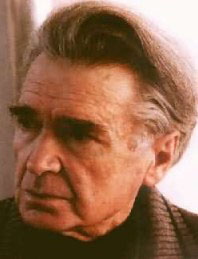 In an acidic little book ( De la France , translated by Alain Paruit. L'Herne), Emil Cioran, gave an answer to the French malaise. He explained how attached he was to boredom, but he distinguished two kinds of boredom: that which opens "its doors to infinity", "as an extension in the spiritual of an immanent emptiness of being" and that which he thinks as one of the most important evils of France, its boredom “devoid of infinity”. He calls it "the boredom of clarity." […] the fatigue of things understood”.
In an acidic little book ( De la France , translated by Alain Paruit. L'Herne), Emil Cioran, gave an answer to the French malaise. He explained how attached he was to boredom, but he distinguished two kinds of boredom: that which opens "its doors to infinity", "as an extension in the spiritual of an immanent emptiness of being" and that which he thinks as one of the most important evils of France, its boredom “devoid of infinity”. He calls it "the boredom of clarity." […] the fatigue of things understood”.
I used to say for a long time how much I was never bored. I now realize that this formula was confusing. By speaking of freedom from boredom, I was saying the exact opposite: I was wallowing in boredom. I rehashed this sentence with contentment and blame myself all the more as I realize its double meaning. It is contentment that should be outlawed. Contentment in hearing oneself speak or performing some action should always arouse distrust in oneself. Contentment is precisely like a remedy for boredom, when one is afraid of being bored. Contentment is the agony of kairos.
I think I can link this boredom that Cioran talks about to my ability to project myself into a spiritual world. I draw no glory from it, no merit, especially since I have always done it effortlessly. I also compare this concept to the answers given by Samuel Beckett in an interview book with another writer: “What have you been doing lately? You wrote ? Something has to be done…” The humility transcribed here has always seemed totally supernatural to me. I imagine the handsome face of Samuel Beckett repeating: “Something has to be done…” Supposing that this something is called Waiting for Godot , what a disappointment for the petty bourgeois. The work reduced to a hunt for boredom!
The rest of Cioran's text moves away from boredom to further clarify the French problem. Cioran knows very well how to handle a style where irony quietly deafens without ever becoming a lament:
“A people without myths is in the process of depopulation. The French campaigns desert is the overwhelming sign of the absence of daily mythology. A nation cannot live without idol, and the individual is unable to act without the obsession of fetishes.
As long as France managed to transform concepts into myths, its living substance was not compromised. The strength to give sentimental content to ideas, to project logic into the soul, and to pour vitality into fictions — such is the meaning of this transformation, as well as the secret of a flourishing culture. Generating myths and adhering to them, struggling, suffering and dying for them, that is what reveals the fecundity of a people. The "ideas" of France were vital ideas, for the validity of which we fought body and soul. If it retains a decisive role in the spiritual history of Europe, it is because it has animated several ideas that it has drawn them from the abstract nothingness of pure neutrality. To believe means to animate.
But the French can no longer believe or animate. And they no longer want to believe, for fear of being ridiculous. Decadence is the opposite of the time of magnitude: it is the transformation of myths into concepts. »»
A whole people before empty categories — and who, with their hands, outline a vague aspiration, directed towards their spiritual emptiness. He still has intelligence, not grafted onto his heart. So sterile.
Learn more about Emmanuel L. Di Rossetti’s Blog
Subscribe to get the latest posts sent to your email.